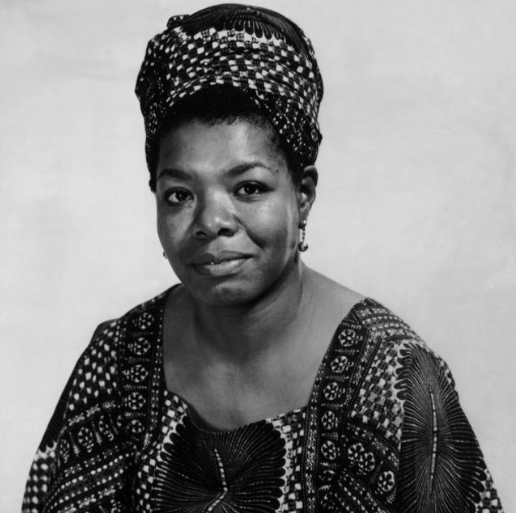Color Connotations: Unveiling Linguistic Racism

Maya Angelou, African-American poet, memorist, and civil rights activist once said that “the plague of racism is insidious, entering into our minds as smoothly and quietly and invisibly as floating airborne microbes enter into our bodies to find lifelong purchase in our bloodstreams.” This so eloquently describes the horror that is the prevalence and toxicity of racist roots in the English language.

Within the English language, whiteness is frequently equated with purity and goodness, while blackness almost always has a negative connotation. For instance, terms such as “blacklisting,” “blackmailing,” “blackball,” and “black market” have nothing to do with the color black or even color at all, yet colorizing otherwise color-neutral words and phrases is not at all a coincidence. Rather, this colorization merely reflects societal cultural normalization of the racialization of both language and human beings themselves. In fact, in the English language, “whiteness” has 134 synonyms, 44 being positive, while the word “blackness” has 120 synonyms, 60 being explicitly negative.
This is but one example of linguistic racism that is prevalent in American society. While such seemingly innocuous words might not appear to have any real impact, they still reinforce the exclusivity of social structures. Linguistic colonization and specifically anti-blackness in language is further explored in raciolinguistics, a subfield of linguistics (the study of human languages) that deals with the influence of social constructions of race on the language of that society. Words that utilize “white” and “black” to highlight a moral good versus evil are particularly insidious, as they align with our society’s racial classification according to the color of one’s skin. Our economic, political, and social structures are designed to uplift Whiteness as a good thing, while excluding Blackness, a belief that is heavily reinforced by the color connotation in diction.

Scholars have long studied the correlation between color connotation and racial attitudes:
According to Douglas Longshore in his article “Color Connotations and Racial Attitudes,” “If the preschool child is learning that white things are good and black things are bad, it seems reasonable that these meanings could generalize to groups of persons designated by the color code as “white” and “black.” Thus, the convenient designation of racial groups by colors may provide the child with an evaluative frame of reference within which more specific learnings of prejudice can be easily incorporated.”
The colorization of such words has persisted today, and is perpetuated further by AI language models, most notably by ChatGPT.
While words with color connotation do predate American social, political, and economic systems that establish and protect prejudice in our society, words that reinforce anti-Blackness actually grew in popularity during the Transatlantic slave trade, when millions of African people were forced into slavery in European colonies in the Americas. One example of a word that was frequently used at this time is “blacklist,” defined by the English dictionary as something regarded “unacceptable” and “untrustworthy” and therefore deserving of exclusion. This word was frequently used in relation to employment and labor unions, used to designate those who would be excluded from jobs, but it has also pervaded technological spaces and computing. While this word had been used long before the American slavery system existed, it still furthers the association between whiteness and trustworthiness, and blackness with deceitfulness. In a country with a criminalization problem—which disproportionately affects people of color, specifically Black men—this association cannot be ignored.

This all relates to Linguistic Determinism, which refers to the idea that the way in which we speak or interact with a language determines how we interpret our own reality, such as our perceptions of other people. Language controls the fabric of our society, not only determining how we think but also how we express ourselves and our ideas. Epistemic injustice specifically investigates the contributions made through the use of ethnically and racially biased language, to a greater culture of discrimination and inequality.
Epistemic injustice is a type of discrimination identified in the field of epistemology, the philosophical study of knowledge, whereby people are unjustly prevented from obtaining knowledge. In society, this manifests itself as people of marginalized backgrounds being unable to accurately express and articulate their experiences. For instance, it may be difficult for a black person to understand their experiences and to accept their black identity, when the word “black” itself is continually equated with moral incorrectness or inferiority. Furthermore, an inability to express oneself according to the language rules of society can prove to be further alienating. In a conference room, a person of color may not be taken seriously both because of their race and because of how they speak, their accent, and their vernacular.

“Sticks and bones may break my bones but words shall never hurt me.” The falsity of such commonly accepted and used statements is best shown through the deeply offensive words that are frequently utilized in our daily lives. Language evolves to reflect the social attitudes of its time, and the responsibility of using language thoughtfully falls upon all of us. The time and effort that linguists have put into researching the impacts of the usage of language should not be in vain, and the knowledge they have shared can be channeled into simple changes in the way we express ourselves on a daily basis. For example, common words like “blacklisting” or “whitelisting” could be replaced by “deny-listing” and “allow-listing,” which neutralize the negative connotations of the words and also makes them easier to understand. These changes would reflect a greater understanding of the historic ways in which people have been systematically excluded and degraded in our society.

